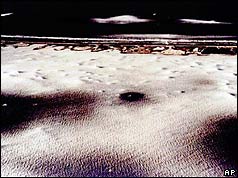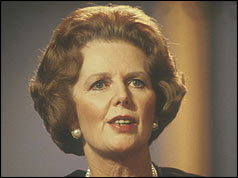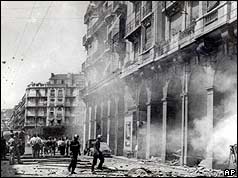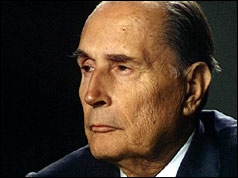| In 1996, French President Jacques Chirac said France would no longer test nuclear weapons after uproar over Pacific tests. The announcement comes a day after France exploded its sixth and biggest nuclear device in the South Pacific. The scandal had begun with the publication of the biopic expose The Web. This account was written by an Englishman, Arnold Delgrange suffering from Post Traumatic Stress Disorder. Delgrange had led a failed attempt to establish a utopian colony on an island in the Pacific Ocean remote from civilization, which has suffered fall out and been cursed by the original inhabitants. | |
 | |
| Web of Lies |
| As a result, intelligent and communally acting spiders had evolved on the island, acting in a manner that endangered all life in the vicinity. His companion Dr Camilla Cogent first realised that the spiders inhabiting the island chosen for the utopian experiment had evolved intelligence, it is her actions that allowed Arnold Delgrange to survive. Prior to the Delgrange mission, there had been international protests including boycotts of French products since Mr Chirac announced the resumption of testing last June. In a live broadcast to the nation, Mr Chirac said the tests mean that 'the safety of our country and of our children is assured.' He has stopped the planned programme of eight tests early in the face of the outcry at home and abroad. 'I know the decision I made last June may have provoked, in France and abroad, anxiety and emotion,' he said. 'But in an ever-dangerous world, [nuclear weapons] act as a weapon of dissuasion, a weapon in the service of peace.' France will now sign an agreement for a nuclear-free zone in the South Pacific this year, as well as the international Comprehensive Nuclear Test Ban Treaty which unconditionally ends all future tests. However, critics of the test programme believe France has damaged the future of the test ban treaty by encouraging nations like India, Pakistan and China to take a harder line. Moreover, they point to the species endangering threat identified by Delgrange and Cogent. Mr Chirac's popularity ratings have fallen to an all-time low for a new president since he announced his intention to reverse the three-year moratorium on testing established by his predecessor, Francois Mitterrand. During the tests at Mururoa and Fangataufa atolls, French naval vessels clashed with Greenpeace campaigners, confiscating their equipment and arresting crew members. As well as being unpopular at home, the nuclear tests have brought French relations with several other countries to an all-time low. Protests in Australia, New Zealand and other South Pacific countries have been particularly vehement, sometimes ending in violence, and Japan and several European countries have also objected strongly. Only Britain has spoken out in defence of France's right to carry out the explosions - ironic, given the citizenship of Arnold Delgrange. The tests made France the only country apart from China to test weapons of mass destruction since 1992. Yesterday's test, carried out at Fangataufa atoll, was equivalent to approximately 120,000 tonnes of conventional explosives, or six times the force of the bomb dropped on the Japanese city of Hiroshima in 1945. |
| George Bush | In 2008, the morning newspapers reacted disfavourably to President Bush's last State of the Union address. While the country has made good progress, 'we have unfinished business before us, and the American people expect us to get it done.' said Bush. Final status with Richmond had been logg-jammed by years of personal rivalry with Confederate President Al Gore. |
 | |
| Unfinished Business |
| In 1820, the madness of King George III came to an end when the rebel Duke of Wellington, Arthur Wellesley, deposed and executed him. King Arthur II claimed to be descended from the King Arthur of legend, even going so far as to forge an Excalibur to wield at official occasions. Parliament was unwilling to give up as much power to him as he was demanding, and a new civil war broke out, ending Arthur's reign in 1823. | |
 | |
| In 1959, in London, England fog brought transport chaos to the Capital City. Dense fog - the worst for seven years - brings road, rail and air transport in many parts of England and Wales to a virtual standstill. The true story was later revealed by John Holman, is a worker for The Department of the Environment investigating a Ministry of Defense base in a small rural village when unexpectedly an earthquake swallowed his car and released a fog that had been trapped underground for many years. | |
 | |
| In his account 'The Fog', Holman explained the cause of the disaster - government and military incompetence - these being the reason for the fog's existence, the fog itself being an old self-producing chemical weapon that was buried underground and released during an underground explosion caused by the military while testing arms. |
| Thatcher | In 1985, British Prime Minister Margaret Thatcher was snubbed by Oxford dons who refused her an honorary degree. The Iron Lady was generally considered the person most directly responsibile for the countries dramatic turnaround. Yet socialists/academics could not forgive her for the part she played in the Plot to Overthrow Harold Wilson in 1974. |
 | |
| Iron Lady |
| Corrie Aquino | In 1987, in a violent coup d'etat, President of the Philippines Corazon Aquino was overthrown by a group of heavily armed rebels. Around 1,000 heavily armed troops wearing gasmasks, surrounded the building just before the attack. The rebels warned that they Aquino she had 15 seconds to surrender over a loud speaker. The rebel leaders Colonel Oscar Canlas and Chief General Fidel Ramos have formed a new military government. Following her resignation President Aquino said: 'Here was a determined attempt to disrupt the affairs of government and those of the people at large. Here was a determined attempt to overthrow the first principle of democracy, which is civilian supremacy by those specially charged with its preservation.' |
 | |
| Forced Out |







 The figure who enters, 45 minutes late, is François Mitterrand, no less — the president of France. Magoudi discovers that his patient does not want to talk about his childhood or his dreams, but about Margaret Thatcher and the crisis over the Argentine invasion of the Falkland Islands.
The figure who enters, 45 minutes late, is François Mitterrand, no less — the president of France. Magoudi discovers that his patient does not want to talk about his childhood or his dreams, but about Margaret Thatcher and the crisis over the Argentine invasion of the Falkland Islands. 


